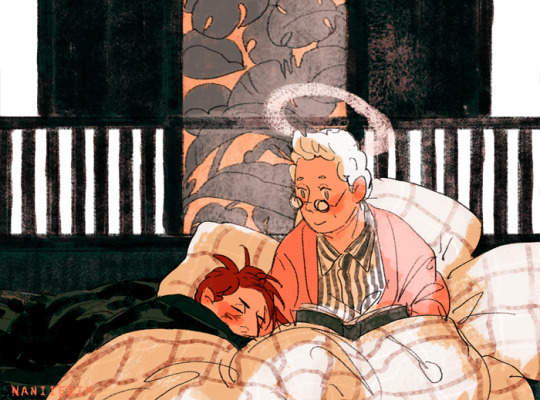a Girl that in to many fandoms to count, an animal lover and a fan of arts and crafts https://twitter.com/ADHDFGadult?s=09
Don't wanna be here? Send us removal request.
Text
The Matriarch Isn’t the Villain. She’s the Mirror

I often hear a discourse where Celine in K-pop Demon Hunters, Alma in Encanto and Ming in Turning Red are seen as vilains. They’re the ones who restricted the younger generation, hurt them, and are ultimately responsible for their pain, trauma and self-doubt. They’re framed as the real villains of the story. But I’d like to differ.
These are stories of intergenerational trauma. They are women who survived, repressed, and tried to protect their families the only way they knew how: through control, perfectionism, and emotional suppression.

And yet, when the next generation begins to reclaim joy, freedom, softness — they become the obstacle. Not because they’re bad people, but because they’re scarred. Their minds cling to survival strategies, unable to recognize that the environment has changed.
Alma is still stuck fleeing the colonizers.
Ming is still afraid of her true self.
Celine believes that fear and mistakes must be hidden.
It’s not about hating these characters. It’s about how unprocessed trauma twists love into control. How survival, unexamined, turns into rigidity. These women were never given space to process their own pain and they project it onto their daughters and granddaughters.

And here’s something we rarely say enough: intergenerational trauma can create toxic patterns but that doesn’t always mean there was abuse or conscious harm. Even when their love becomes suffocating or controlling, these women are not necessarily “abusive parents.” They are daughters of silence, fear, and sacrifice. And they were never taught another way. It’s important to make that distinction, especially in a world that often pushes a binary, punitive reading of family dynamics.
They’re the product of a generation that was told to endure. But endurance without healing becomes its own kind of violence.

What’s powerful in these stories is that they don’t end in vengeance. They end in confrontation and transformation. The confrontation is necessary: the younger generation refuses the silence. Refuses the shame. Refuses to carry a burden that wasn’t theirs to begin with.
The house is destroyed in Encanto.
Mei accepts her full self.
So does Rumi.
And in the best cases, this confrontation allows the elder to soften too. Alma opens up. Ming listens. And I’m hoping in the sequel, Celine will open too.

Maybe that’s also why these stories speak so deeply to POC audiences. These aren’t stories about cutting ties. They’re stories about how hard it is to transform them, to protect ancestral bonds while refusing to perpetuate inherited pain. In many racialized families, collectivity, loyalty, and intergenerational duty are sacred... even when they come at the cost of personal boundaries.
And sometimes, Western individualist frameworks read these tensions as dysfunction or villainy. But for us, they’re just the difficult truth of growing up and trying to do better.
These women aren’t villains. That would be too easy. They embody the fragile, necessary work of bringing change without breaking the thread. These stories are about refusing to inherit their pain without reflection. Because love, without accountability, is not enough.
These stories show us that each generation has something to learn from the next. And the new generation must also break free from the chains they inherited while preserving what is meaningfull.

But it’s not just their story.
One day, we’ll be the older generation.
And we’ll need to be humble enough to learn from the ones after us.
So don’t be a fool.
We may be Mei, Rumi, or Mirabel today.
But tomorrow, we could be Ming, Celine, or Alma.
And when that time comes, we’ll realize how hard it is to unlearn what once kept us safe.
So let’s have compassion for all these characters.
Because these stories show us not just how the cycle of generations works, but how it can make us better, stronger, and more connected... if we’re all willing to go through the change.
∘₊✧──────✧──────✧₊∘
If you’re curious, I’ve written more on K-pop Demon Hunters:
A post on the mental health themes woven through the songs — right here.
A breakdown of Celine-Rumi in comparaison to Gothel–Rapunzel dynamic — here.
An analysis about Rumi, Jinu, and the danger of sinking together — here.
Some book recs for each of the K-pop Demon Hunters characters — here.
17K notes
·
View notes
Text

He is my favourite. Pls watch KPDH it's beautiful
60K notes
·
View notes
Text
🐁Make Websites Think You're Somewhere Else (extensive tips from a russian)
in my country, Shit Simply Won't Work. even the people who don't mind our authorities are getting VPNs because without them, the internet is unusable. whatever the government hasn't yet banned is limited from the outside via blocking russian traffic, not signing up russian phone numbers, and not taking russian payment.
here's some tips on how to bypass next to any online restriction if your government also wants to get up your asshole with a lantern and swab every fold for biometrics. i've given the rundown privately to a UK friend of mine, but this could be relevant to anyone. expenses and complexity may vary, do whatever works for you. mind the laws of your country when considering the possibility of any of these methods.
if there's anything i have omitted or gotten wrong, feel free to add!
1. get a VPN
VPNs are middlemen between you and the website you want to access. they're the first (and for many, only) step to location masking. here, you have two options:
get a commercial VPN. pros: easy, you hit a button and it works; wide selection of countries. cons: more expensive (unless it's a free one, then be aware you're the product); it's easy for governments to block commercial VPNs, as VPN companies are required to make all their IPs public; some VPN companies may be worse at handling your data than others
rent a server in your country of choice and deploy a VPN on it (openvpn is a popular tool for this). pros: server rent is often cheaper than a VPN subscription; it's exceptionally easy using this openvpn script; you can share it with as many people as your traffic capacity will allow; it's more reliable and harder to block because the IP won't be associated with any known VPN service. cons: you have to be a bit more tech-savvy and know how to set up a linux server, or be willing to learn; if you want another country/address, you have to set up another server. going down this route, look up how to keep your personal server secure if you don't already have an idea
‼️caveat 1: VPN traffic looks different from normal traffic. often, websites can tell you're using a VPN. there are tools to mask this fact that may or may not come with your VPN, including DIY solutions like openvpn. look into those tools, try different VPNs as needed
‼️caveat 2: sometimes, websites get your location from the data stored in your browser. VPNs also come in the form of browser add-ons. they have solved this issue for me every time
‼️caveat 3 (99.9% chance you don't need to worry about this, feel free to skip): just having the one openvpn server could come with several issues. if all your devices are connected to it 24/7 and anything you do ever accidentally invites scrutiny (or if there's ever widespread measures to weed out VPN users), it'll be very obvious you're using one. only having a single address also makes it much easier to trace all your activity back to you. your government, if it has the power, could also compel the hosting company to tell them who's paying for the server. if you're the kind of person who'd be concerned about this, you're probably not reading this guide, or you already know how to mitigate.
2. TOR as a VPN alternative
some people i've known have used TOR in lieu of a VPN out of convenience (though personally, it wasn't convenient for me). if for some reason you can't/won't do VPNs, consider using the TOR browser. it also hides your location and encrypts your data, and it's free.
keep in mind that it's easy for a government to combat the use of TOR, as russia has (successfully?) banned it (fellow russians, do tell me if it somehow still works, i haven't been keeping up). can't elaborate any further since i haven't used TOR as a daily driver myself
3. use temporary phone numbers
a lot of platforms decide which country's laws your account needs to follow based on your phone number. signing up for a website, you can use a cheap online service that provides phone numbers from a wide choice of countries.
these are temporary, often single-use, meaning you sign up, you get the code in the SMS, and you can't access the number again. the one i've used has billed per text, with prices varying by target country. i recommend this method for low-stakes stuff that you just need to get working once, or for services where you can immediately switch all verification to email. absolutely do not use this for payment processors or other accounts you can't afford to get compromised or lose.
there's also completely free services like this where the numbers are permanently available to everyone, and anyone can read the text history. those are obviously very insecure so i'd never use them in most cases
4. travel to the nearest cheapest easiest country and get your own sim
...if you don't already have one from travelling or w/e. solves all the issues of the above method. costly but worth it to some. sign up for anything at any point foreva (obviously limited by the country you're buying your sim in) (and by whether you need a payment method, on that below)
5. travel to the nearest cheapest easiest country and get your own sim and a bank account registered to that sim
russians are completely cut off from international banking without credit card tourism, so we've been doing it a lot since the start of the invasion. this may become relevant to our UK friends, as websites can fix your location to that of your bank account, OR throw a hissy fit if the locations of your phone and your bank account don't match.
this is expensive. i've thankfully been able to afford the trip, while many many others can't. the costs are more justifiable to a russian, but if you're english and can travel somewhere they'll let you make a bank account quickly, consider this option. this, combined with a VPN to the country of your new card and phone, can free you from your new restrictions entirely*
research carefully how someone with your citizenship can open a bank account in the country you're planning to visit, how long it will take, how much it will cost, and how to declare your new account to your own tax authorities.
*i haven't been to every single website nor am i english, extrapolating from personal experience
‼️caveat 1: make your billing address an address in the new country if possible. some websites will throw up and die if your billing address is in a country they want to restrict
‼️caveat 2: some websites will throw up and die if you try to change the country of your profile without your traffic also coming from that country. you still need a VPN
‼️caveat 3: some websites will throw up and die if you change the location of your profile too frequently. try to minimise "suspicious" activity, as major region-dependent services like spotify can and will fight you tooth and nail
that's it from me for now. thank you for reading, reblog if you've found this helpful, add if you know more, and happy browsing!
2K notes
·
View notes
Text
Curious Tiger Chews on Cardboard Tube in His Outdoor Enclosure
49K notes
·
View notes
Photo

The name’s Crowley.
A.J. Crowley.
In honour of the one time he bought petrol, and the James Bond bullet hole window transfers.
(Please check out fanbook preorder!)
9K notes
·
View notes
Text
love the library. there's no risk. you can take out a book and go "wow this sucks" and just give it back. and when you do that you're still making the library's Number Go Up so you'll be able to roll the dice on even more books. all for the low low price of free/you already paid for it with your tax money so you might as well use it
45K notes
·
View notes
Text
The world’s on fire and we are about to lose our democracy in America™️
That means I need to share somewhere soft to land for people who are as upset as I am.
So enjoy this tender Brother Francis and Nanny Ashtoreth moment from my Patreon.

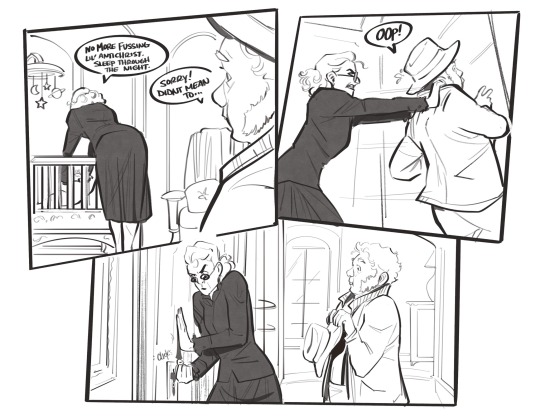



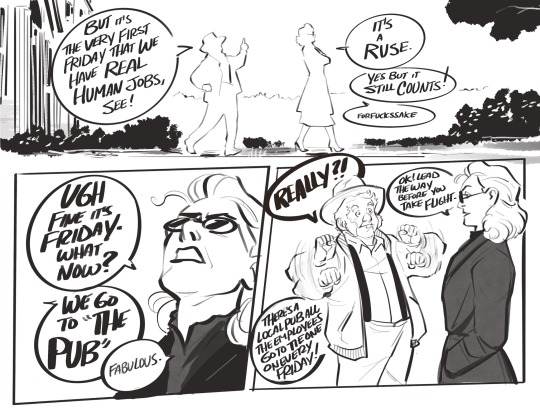



1K notes
·
View notes
Photo

This is FINE.
Firey Stress Snoom.
Snugging a book in you lap because it’s currently the most fireproof spot in the whole car.
ANGELANGELANGELANGEL.
4K notes
·
View notes
Text


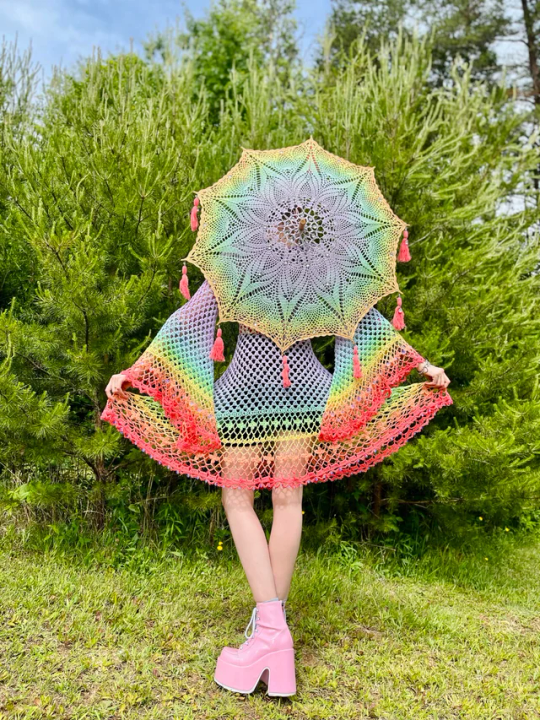






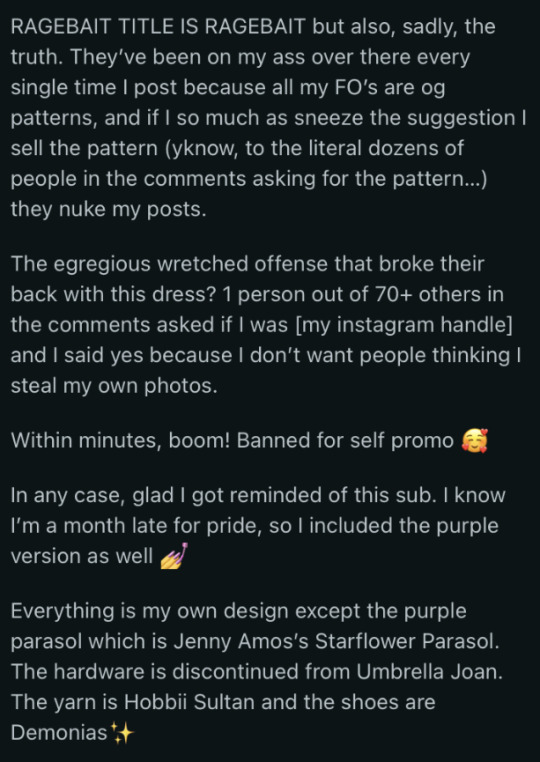
he sells his patterns on etsy!!! he’s also on instagram and youtube- his name is marcus and he’s pretty damn cool :)
16K notes
·
View notes
Text










he sells his patterns on etsy!!! he’s also on instagram and youtube- his name is marcus and he’s pretty damn cool :)
16K notes
·
View notes
Text

-How much trouble can I get into for just asking a few questions?-
553 notes
·
View notes
Text
The world’s largest sand battery has started working in the Finnish town of Pornainen

Capable of storing 100 MWh of thermal energy from solar and wind sources, it will enable residents to eliminate oil from their district heating network, thereby cutting emissions by nearly 70 per cent.
Launched just as Russia cut off gas supplies in retaliation for Finland joining NATO, the project was a timely example of how renewable energy could be harnessed in a new way.

Finding a way to store these variable renewables is the crux of unleashing their full potential. Lithium batteries work well for specific applications, explains Markku, but aside from their environmental issues and expense, they cannot take in a huge amount of energy.
Grains of sand, it turns out, are surprisingly roomy when it comes to energy storage.

It’s quite a simple structure to begin with, Polar Night Energy said of its prototype. A tall tower is filled with low-grade sand and charged up with the heat from excess solar and wind electricity.
This works by a process called resistive heating, whereby heat is generated through the friction created when an electrical current passes through any material that is not a superconductor. The hot air is then circulated in the container through a heat exchanger.
The sand can store heat at around 500C for several days to even months, providing a valuable store of cheaper energy during the winter. When needed, the battery discharges the hot air - warming water in the district heating network. Homes, offices and even the local swimming pool all benefit in Kankaanpää, for example.
“There’s really nothing fancy there,” Markku says of the storage. “The complex part happens on the computer; we need to know how the energy, or heat, moves inside the storage, so that we know all the time how much is available and at what rate we can discharge and charge.”
In Pornainen, Polar Night Energy has found a sustainable material in crushed soapstone; a by-product of a Finnish company’s manufacture of heat-retaining fireplaces.
"Tulikivi is a well-known and traditional company,” says Naskali. “The soapstone they use is a very Finnish thing.”
996 notes
·
View notes



